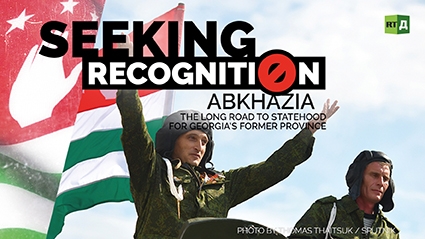Ofcom Fines Russian News RT for Impartiality
The Russian news service RT has been fined £200,000 by UK communication regulator Ofcom for breaking impartiality rules during its news and current affairs broadcasts.
Funded by the Russian government, RT, formerly known as Russia Today, provides television channels and internet articles targeted at audiences outside of Russia. They produce content in English, Spanish, French, German, Arabic and Russian.
Ofcom began investigating RT for breaching its impartiality rules in 2018 for its coverage on the Sergei and Yulia Skripal poisoning in Salisbury, UK, the conflict in Syria, the Ukranian government’s position on Nazism and the treatment of Roma Gypsies in Ukraine.
The news outlet is regularly accused of spreading disinformation and acting as a propaganda tool for the Russian government. Indeed, RT’s editor-in-chief stated that the outlet is “waging an information war against the entire Western World.”
Regarding the recent impartiality breach, Ofcom said “RT’s failings were a serious breach of our due impartiality rules which protect public trust in news and other programs,” reported the BBC.
However, in a statement released by RT, the outlet denied the accusations: “It is very wrong of Ofcom to have issued a sanction against RT on the basis of its breach findings that are currently under judicial review by the High Court in London,” reads the statement.
“While we continue to contest the very legitimacy of the breach decisions themselves, we find the scale of the proposed penalty to be particularly inappropriate and disproportionate per Ofcom’s own track record,” the report continues.
In an article in the Guardian, CEO of Zinc Network communications agency Robert Elliot warns about the far-reaching and dangerous effects of Russian propaganda, spread via RT. Although their reach in the UK is relatively small, their content is often shared thousands of times and sometimes reported in mainstream British media without verifying the facts.
“Evidence is mounting to suggest they [RT] routinely disseminate stories designed to sow division in the West and pursue the foreign policy goals of the governments that back them, consciously or otherwise,” writes Elliot.
RT has also released coverage on events in Georgia. On July 12, they released a documentary titled ‘Seeking Recognition of Abkhazia: The Road to Statehood for Georgia’s Former Province.’
“Georgia views the declaration of independence as a violation of territorial integrity, but for the locals, it was rectifying years of historical injustice,” reads the description. “The Abkhaz people say their land was forcibly incorporated into Soviet Georgia because the authorities, under Joseph Stalin, were intent upon eroding Abkhaz national identity.”
The extent to which Russian disinformation affects opinions and politics worldwide is hard to measure. However, recent years have underlined the impact that the spread of disinformation, especially on social media, can have on the outcome of elections and public opinion far outside of Russia’s borders.
By Amy Jones
Image source – RT












